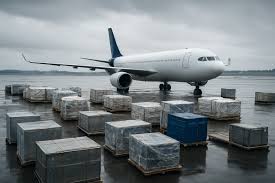Assisted by stable domestic consumption and investment demand, the rating agency ICRA projects favourable demand conditions for the Indian road logistics sector to continue in FY2024. Industry revenue growth is forecasted to be in the high single digits on an elevated basis in FY2023.
Downside risks to the estimates still exist, however, from any significant tapering of demand brought on by high inflationary and interest rate policies, the emergence of any additional COVID-19 waves, or an inadequate monsoon impacting the state of the overall economy given its close connection to economic activity generally.
Despite the debt-financed capital expenditure for vehicle replacement that was necessary prior to the start of the scrappage policy, it was underlined that the cash flows and debt coverage measures are likely to stay comfortable with consistent earnings.
Despite facing some challenges like general inflation, rising fuel prices, a shortage of drivers, etc., the Indian road logistics industry was supported in FY2023, thanks to an accelerated tempo of business activities, improving demand from end-user segments, and favourable realisation.
“Revenue growth over the medium term would continue to be driven by demand from diverse segments such as e-commerce, FMCG, retail, chemicals, pharmaceuticals, and industrial goods, coupled with the industry’s paradigm shift towards organised logistics players, post-GST, and e-way bill implementation,” said Suprio Banerjee, Vice President and Sector Head, Corporate Ratings, ICRA.
Additionally, quarterly revenues for the logistics industry saw a slight decline of 2per cent in Q3 FY2023 vs. Q2 FY2023. Economic activity was uneven in Q3 FY2023 after two quarters of solid demand, notwithstanding strong demand for contact-intensive services and positive holiday morale.
According to the report, “We anticipate revenues in Q4 FY2023 to be higher than Q3, supported by favourable demand and realisations.”
Although organised players effectively handled rate increases, on a collective basis, 9M FY2023 saw a moderation in margins to 12.3per cent from 13.8 in 9M FY2022 due to higher fuel costs, which were not sufficiently offset by increases in hire charges.
Monthly FASTag and E-way bill volumes peaked in December 2022 before sequentially declining in January 2023 and February 2023 after the effects of the holiday season in Q3, according to the rating agency.
The total FASTag volumes for January and February 2023 increased by 24per cent year over year, while e-way bill volumes increased by 19per cent. Given the anticipation of a healthy demand picture in the short term, the volumes are likely to stay constant over FY2024.
We anticipate revenues in Q4 FY2023 to be higher than Q3, supported by favourable demand and realisations











